Andrea Warren is a talented non-fiction children’s book author who introduces school aged children to fascinating aspects of history. Children easily grasp her powerful messages by seeing history through the eyes of young people who lived in earlier times.
Today, I welcome Andrea to this site so that readers can learn more about her background and writing techniques. You don’t have to be a child to enjoy her engaging stories.
When you look back to your childhood days, can you identify three authors/books that turned you on to reading non-fiction?
I don’t remember any nonfiction authors or books until I reached high school and read The Diary of Anne Frank. That might have been the first one. But all through childhood I read all the time and much of it was nonfiction.
I learned to read at age four, taught by my mother and older brother. I was reading his schoolbooks by the time I was in first grade. I avidly read the two daily newspapers delivered to our house, and my parents subscribed to a slew of magazines that I read from cover to cover.
I had a variety of part time jobs, beginning at age 14. The one I loved—and the one that heavily influenced me—was working my junior and senior years of high school for our local weekly newspaper. I had all kinds of responsibilities, like sweeping the floor around the big printing press and taking phone messages. I wrote a teen column for the paper and I edited both my high school newspaper and yearbook. I’ve always liked reporting the news.
After you researched and wrote your first children’s book, Orphan Rider: One Boy’s True Story, why did you choose to continue on the path to become a notable non-fiction children’s book author?
At the time I started that book I was writing steadily for magazines—mostly feature articles, essays, and consumer interest kinds of things. Human interest stories were always my favorites, and I knew about orphan trains growing up.
I was a teacher for eleven years before turning to full time writing. It occurred to me that young readers would be drawn to this story, which is so compelling. I reasoned, as an educator, that they would also painlessly absorb a great deal of history while they read it.
So I wrote a book I could have used with my students when I was a teacher. Orphan Train Rider was very successful. One reason was because young readers could see themselves in Lee Nailling. They got on that train with him and were with him until the end. Looking back, writing the kind of book I do was kind of a no-brainer. I have enjoyed creating each one. That said, they’ve all presented various challenges.
Why do you write books using children’s perspectives?
I think that looking at history through the eyes of people who lived through it as children offers a unique and important perspective. Events that happen in our formative years shape who and what we become.
I also believe that if young readers identify with my main character, they learn history in a very organic fashion—they just soak it up while involved in the human story. Also, historians pretty much ignore the experiences of children, and they can be valuable eye witnesses to just about everything.
How do you select the topics for your books? Are there any specific messages that you are hoping to convey to readers?
Specific messages first: Bad things, very unfair things, happen to lots of children. If you are one of them, my message is that your attitude will determine what kind of life you have and what degree of happiness you will experience. Attitude is all. Being able to forgive is an important key. Young readers get this. I know this because of the letters they’ve sent me. (Adults learn the same message from my books, and they, too, write to tell me.)
Topics: It has to be something I find fascinating because I am going to spend several years seeing a book through to publication and years afterwards talking about it. It also has to be a topic that can find a home in the classroom, and that has eliminated a number of topics I’ve wished I could write about.
Finally, I can’t write the book unless I find that very special main character. Only once has the character found me first, and that was Charles Dickens. With all the other books, I’ve had to go hunting.
After being the recipient of many book awards, can you identify three ingredients for an outstanding non-fiction story?
- Well, for starters: Interesting period of history or historical event
- Compelling main character; writing that doesn’t sound like a textbook.
- Another is extensive and accurate research, which leads to the next question.
Non-fiction books require extensive research. Approximately how much time do you spend looking for background information and does your research usually require traveling to historical sites, museums, and/or research libraries or can most be accomplished using a computer?
It depends on the topic. I typically start with a great deal of reading, which often includes fiction. Then I start digging into archives. More are now available online but they were not for the first few books. Every book has required travel. The places I’ve visited have greatly enhanced the books.
With the orphan train books I did primary research in New York City. I spent time with riders, wherever they lived, and I did research throughout the Midwest at museums, libraries, and newspapers. I also attended several reunions of orphan train riders.
With Pioneer Girl, I traveled to the area where Grace grew up and I spent a day with her family. I also spent many hours in museums throughout the Midwest, particularly the quilt museum in Lincoln, NE, where a number of her quilts are on display.
Surviving Hitler took me to the Holocaust museum in Washington, DC. I contemplated a trip to Europe but Jack convinced me I didn’t need to do that.
I couldn’t have written Escape from Saigon if I hadn’t spent three weeks in Vietnam. You simply can’t “know” it without going there.
Under Siege! included an eventful trip to Vicksburg, Mississippi and the surrounding area. Being in that place, feeling that July heat, experiencing the river and the battlefield—all impacted the book.
Charles Dickens and the Street Children of London was entirely researched in London. Most of the work was accomplished at the great British Library where I secured research credentials. I also went to Dickens’ former home, which has archives, and to the Foundling Hospital and its archives. I was teaching in London at the time. When I arrived, I had no notion of writing a book set there, but as I said, Dickens found me.
Buffalo Bill was largely researched in the area where I live since much of the story takes place right here. I also spent several days immersed in the archives of the Buffalo Bill Center of the West in Cody, Wyoming. While in Cody I saw the dam named for him and all the places in Cody associated with him. I had already seen places associated with him in London.
I found the story for Enemy Child on that trip when I visited the Heart Mountain War Relocation Center thirteen miles from Cody. I subsequently returned there two more times for research and to participate in the annual Heart Mountain Pilgrimage. I also conducted research at the Japanese American Memorial Museum in Los Angeles. I visited Bainbridge Island near Seattle because I wanted to include what had happened there. And I also spent four days with Norman Mineta to interview him.
After completing your fact-finding mission, do you follow any specific steps during the writing and editing process?
Not really. It usually starts as a messy jumble that I gradually organize. I always have tapes to transcribe. I do it myself because it’s so important to get the vocal inflection in there. I used to try to formally outline my books but now I use a much looser outline. It frequently changes because I let the material tell me what I need to do.
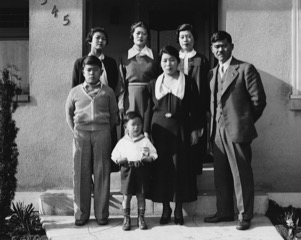
Finding a notable personality who is willing to tell his/her great story is a major accomplishment. Did you have any initial concerns that the interview process with Norman Mineta would not reveal sufficient or appropriate information for a children’s book?
I don’t think I’ve ever thought that. Maybe because I find people in general so interesting. Norm is exceedingly modest and always gives credit to everyone but himself. All of the additional research I did by interviewing people who know him was important because they would tell me things that he never would have told me. One example: he didn’t mention that he’d been awarded the Presidential Medal of Freedom.
When I got in touch with him (which wasn’t easy), Norm understood immediately what I wanted to do. I’d sent him a couple of my other books. After reading the books, he agreed to work with me. He liked those books.
He had never previously consented to be interviewed in depth for a book about him. When I came to him, he said yes because he feels it’s so important for young people to know what happened to our Japanese Americans. After reading several of my books, he trusted me with his story. I’ve done my best to live up to that trust.
What was the biggest challenge you faced while researching, writing or editing Enemy Child?
Since it wasn’t my experience, I must always be exceedingly careful to be objective. I’m very much a believer in having my subject see exactly what I’m writing because the story must be told through his/her perspective. I of course have opinions. Thus the caution.
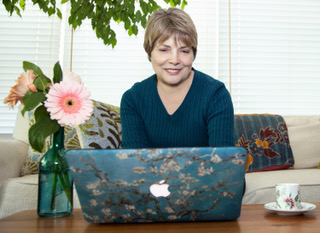
After completing Enemy Child, what do you hope your readers, young and old, will remember from the book?
I hope they remember the injustice on the part of our government and remember how traumatizing this experience was for Japanese Americans. And yet most remained loyal to this country and raised their children to be patriotic citizens.
What is the best part of sharing your books during author visits or video conferencing? (Can you. Include a few things that you learned from children or teachers?)
I love seeing young people get excited about history. I know we’re connecting when they start asking questions that aren’t the typical “how long did it take you to write this book?” And of course there’s nothing better than having a student tell you that this is their favorite book ever.
Sometimes there are those rare students who think about what it takes to write a book and ask perceptive questions about the research, the writing, and all the decision making that goes into creating a story. Always always always… I have tremendous respect for those teachers and librarians who take time to not only put the book in students’ hands, but give them background information to prepare them for an author visit.
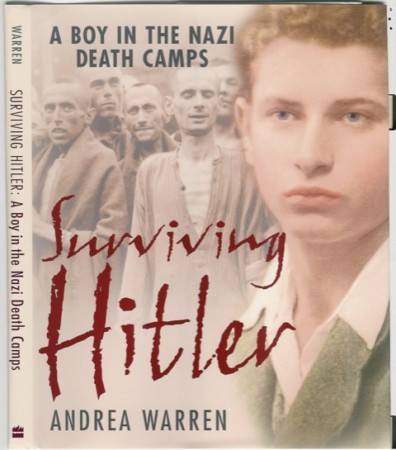
Do you have any upcoming publications that you would like to mention?
I’m taking a break from book writing. At the request of the Jewish Community Center (JCC) in Kansas City, I am turning my book, Surviving Hitler, into a play that the JCC hopes to perform in 2021. This is dependent on whether they are fully active because of the pandemic.
I’ve written some video scripts in the past, but never a stage play. I’m enjoying the process. I love theatre but I have to say that writing a play is much tougher than it looks. I’m learning a whole new set of writing skills.
Is there anything else that you’d like to share?
The importance of nonfiction in the school curriculum cannot be overstated. Escape into fiction is a joy. I read fiction all the time—but when it’s written well, nonfiction can have all the joyful elements of fiction—fast-paced story-telling, dialogue, fascinating characters, and memorable settings.
It also teaches us where we come from and who we come from. Study the darkest days of World War II and you’ll see that what we’re experiencing right now as a nation can make us better, provided we’ve learned the lessons history has to teach us.
DISCLOSURE
I received a complimentary copy of Enemy Child: The Story of Norman Mineta, a Boy Imprisoned in a Japanese American Internment Camp During World War II.
BIO
Sandra Bornstein is the author of May This Be the Best Year of Your Life. Sandra’s memoir highlights her living and teaching adventure in Bangalore, India. She was a licensed Colorado teacher who taught K-12 students in the United States and abroad. Sandra also taught college-level courses at Front Range Community College and the University of Colorado-Boulder.
In addition to reviewing books and interviewing authors, Sandra is an award-winning author and lifestyle and travel journalist. Many of Sandra’s travel stories appear on the For Readers Page. TheTravelingBornsteins website showcases recent travel and lifestyle stories.
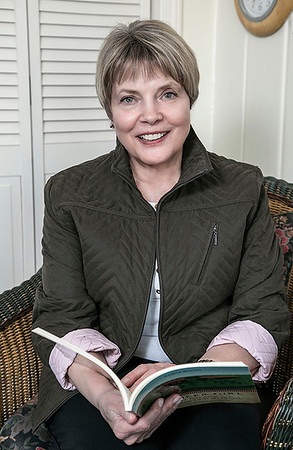

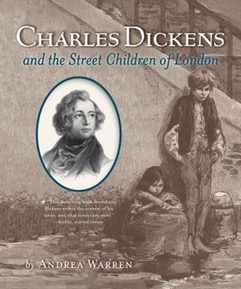
Connect with Sandra